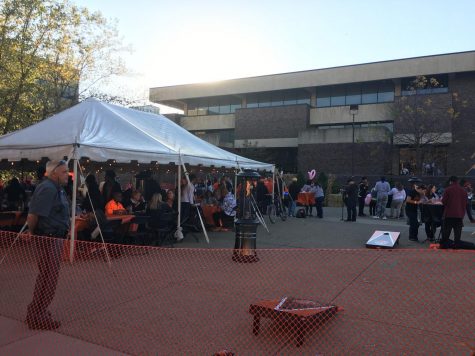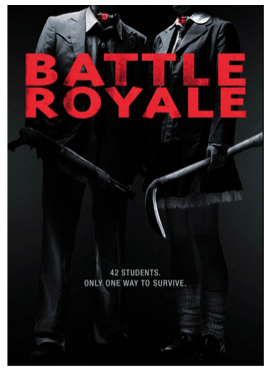Balance necessary and beneficial in college
Regardless of your position within the higher education spectrum, at one point or another we all battle to find balance. College’s best lesson in preparing us for the real world is that struggle, even in its simplest form, is going to be a part of our lives from here on out.
When it comes to academics, some of us will hit the books hard. Some of us might tap them lightly, not being able to bear the thought of missing an opportunity to socialize and get the most out of the “college experience.”
Too bad we can’t simultaneously live at both sides of the spectrum.
It is nearly impossible to be both a social butterfly and dedicated bookworm when there are only 24 hours in the day and other factors to contend with.
As nifty as it would be, there is no handbook for college that delivers us the proper ratio of studying to socializing. The good news is that the formula to success is less painstaking than we once thought. I’m not going to downplay the importance of studying, but there is evidence to support that briefly walking away from it all is more beneficial than keeping your nose to the grindstone.
In a study led by University of Illinois psychology professor Dr. Alejandro Lleras, it was found that even short diversions from a task could dramatically improve focus on that task for long periods of time.
Lleras said he believes that the reason a task comes to be performed poorly is that it can no longer sustain attention. So if you feel yourself start to wonder about what that noise is or if you should go to Subway tonight, go take a break, get a sub and come back when you can focus on the task at hand.
We become habituated to the stimuli surrounding us. This process is really meant to protect us, because we would go crazy if we truly focused on every little thing in our field of vision. But we’ve worked too hard to get to this point in our lives to let habituating get in the way. Just recognizing it will do wonders in combating it.
Socializing, or networking, is a tool for success, so it is imperative that we incorporate time to do so.
In a 2011 study, the Academy of Finland found that socialization during college years led to workplace success later on. The 18-year study found that more socially optimistic participants had higher levels of work engagement, while social avoidance translated to quicker exhaustion.
So be social, but not too social where your studies slip away.
The best way to determine what works for each of us is to confront ourselves and say, “Is this working?” If it’s not, change something. No doubt each of us has a lot on our plate, but it really should not be that difficult to complete all assignments if we budget our time well.
New York University sociology and education professor Richard Arum, and University of Virginia sociology professor Josipa Roksa looked at how challenging college was for students in their 2011 book “Academically Adrift.” They found that 32 percent of the students they followed were assigned only 40 pages or less of reading per week. Forty pages a week breaks down to less than six pages a day. If we do the math we’ll see that (most of us) need not ever complain about being strapped for time.
A typical student takes 15 credit hours. This means being in class for about 15 hours per week. Each credit hour dictates three hours of studying outside of class. Fifteen times three equals 45 hours outside of class per week. So far we have 15 plus 45. That’s 60 hours dedicated to classwork per week. Taking out eight hours of sleep per night still leaves us with 52 hours leftover. Even working in a full-time job will leave us with 12 hours of leisure time per week. It’s simple math.
Although our society perpetuates the need for instant gratification, you’re going to have to forgo that mindset and hang in there. If you study with intent and focus, take some breaks and step back to enjoy everything going on around you, you will realize that you are more than capable of doing it all. You’ve got this.
Samantha Wulff can be reached by email at [email protected].










